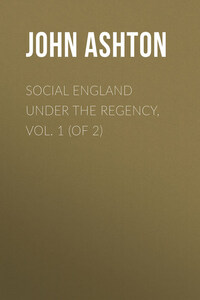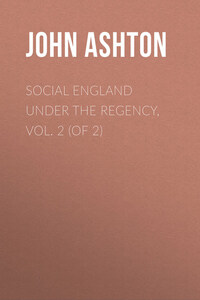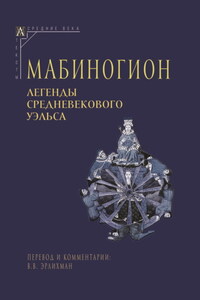PREFACE
Certainly, it is not the least part of an Author's reward, for all his pains and trouble, to find that the Public appreciates his efforts, and purchases, and reads his books.
This, I am happy to say, was specially the case with one of mine, "The Dawn of the Nineteenth Century." In it I wrote of Social England in the first decade of the century, leaving off at a time when George III. was hopelessly incompetent to govern, and a Regency was in progress of establishment.
The favour which the Public bestowed upon this book emboldens me to continue it, and sketch the men and manners of the Regency. Most books of this class deal mainly with the great ones of the land, but I have only done so where necessary to illustrate the history of the times, my aim being more to delineate the social condition of England, and her people; and this work will be found perfectly reliable as history, nothing being taken at second hand, but all compiled, even down to the illustrations, from original and contemporaneous authorities.
The King's Malady – Former preparations for a Regency – King's recovery – The King at home – His love of music – Severe frost – Lucien Buonaparte a prisoner of war – French obstructions to commerce – A gallant merchantman
"State of His Majesty's Health
"Windsor Castle, January 1, 1811.
"His Majesty has passed a quiet night, without much sleep, and continues the same as he was yesterday.
"W. Heberden.
"R. Willis."
Such was the announcement contained in The Times of 2nd of January, 1811, and, for some time, the subjects of George III. were fed with daily news of the King's health. By and by, as his mental disease was confirmed, they grew fewer, until they were furnished just once a month, and then only the very scantiest intelligence of his condition was vouchsafed to his people.
This was not the first time that his mind had given way. In the early part of October, 1788, he had decided symptoms of mental aberration, and was totally incapable of undertaking any of the affairs of State; but his physicians were hopeful of his recovery – and their hopes were gratified. But the Ministry thought differently, and, after suggesting that the Government should be carried on by a Commission, on the 30th of December, 1788, Pitt wrote a letter to the Prince of Wales, stating that his Majesty's Ministers had come to the conclusion to offer him the Regency of the kingdom under certain restrictions.
The Prince of Wales replied at once, expressing his sorrow at the occasion of his proposed elevation, but accepting the trust. Of course, this suggestion of the Government could not be acted upon without mature deliberation, and it was not until the 30th of January, 1789, that the following resolutions of the Lords and Commons were presented to the Prince of Wales – "That his Royal Highness be empowered to exercise the royal authority under the title of Regent." "That the power given, should not extend to the granting of any peerage, except to the Royal issue." "Nor to the grant of any office in reversion, or any office, salary, or pension, than during his Majesty's pleasure; or to the granting his Majesty's real or personal estates." "That the Care of his Majesty be committed to the Queen, who should nominate all persons to the offices in the household."
Needless to say, the Prince made no objections, and by the 12th of February, the Regency Bill had gone through all its stages in the House of Commons, and was ordered to be sent to the Lords. But the proverbial "slip 'twixt cup and lip" occurred. On the 19th of February the Lord Chancellor informed the House of Lords that, according to the report of his physicians, the King's health was steadily mending, and they therefore abstained from further consideration of the Regency Bill.
The physicians' hopes were fully justified; the King got better rapidly, and, on the 27th of February, his perfect recovery was announced, the prayer for the same was discontinued, and a form of prayer of thanksgiving for his restoration to health, was ordered to be read in all Churches and Chapels throughout England and Wales. Rejoicings and illuminations were the order of the day, and, on the 23rd of April, the day of general thanksgiving, the King, Queen, and Royal family went in state to St. Paul's Cathedral, to return thanks to God for his mercy in giving the King his reason and health once more.
Years went on, and the King did not suffer from mental disease, until the year 1810, when to bodily illness of his own, was added the death of his daughter, the Princess Amelia. This shock, his intellect, perhaps never too strong, could not stand, and, although his condition was concealed for some little time from the people – under the pretence that he had a cold – the truth was obliged to come out; and we read in The Morning Post of October 31st – "It is with heartfelt sorrow we announce that His Majesty's indisposition still continues. It commenced with the effect produced upon his tender parental feelings on receiving the ring














